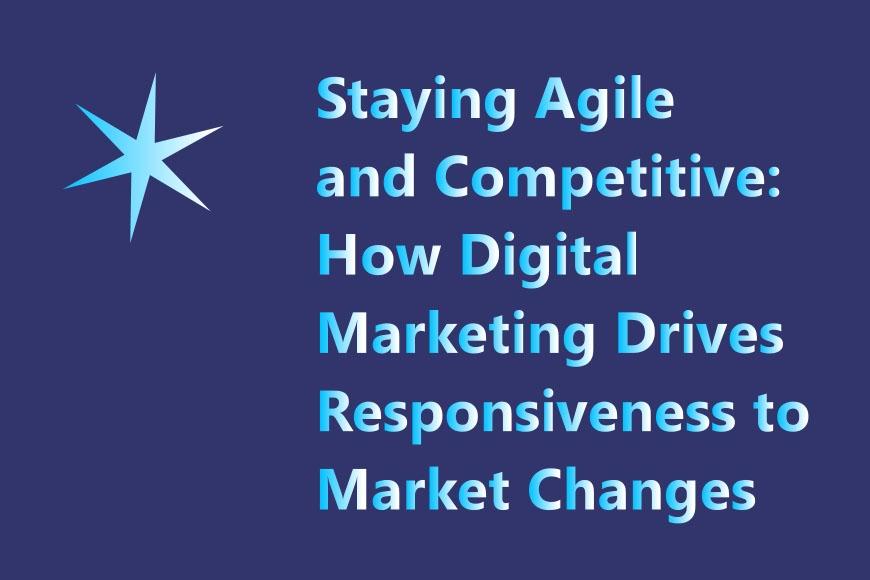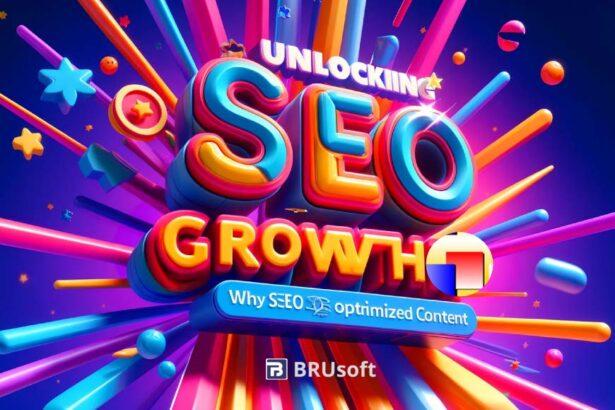In a fast-paced business environment, companies need to stay agile and responsive to maintain a competitive edge. Digital marketing plays a pivotal role in enabling this agility, allowing organizations to quickly adapt to market trends, respond to customer needs, and capitalize on new opportunities. By embracing digital marketing strategies, businesses can navigate the dynamic landscape with greater flexibility and innovation.
With digital marketing, companies can reach their target audiences in real time, track customer behavior, and measure the effectiveness of their campaigns with precision. This level of insight helps them adjust their marketing strategies on the fly, ensuring they remain relevant and ahead of the competition. Let’s delve into the various aspects of how digital marketing contributes to business agility and competitiveness.
Harnessing Real-Time Data for Instant Adaptation
Real-time data is one of the key drivers of business agility in digital marketing. It allows companies to make informed decisions quickly and effectively. By tracking metrics such as website traffic, social media engagement, and conversion rates, businesses can identify emerging trends and adjust their marketing efforts accordingly.
Leveraging Analytics Tools for Insight
Analytics tools are essential for extracting meaningful insights from real-time data. Platforms like Google Analytics and Facebook Insights provide a wealth of information about customer behavior and campaign performance. With these tools, marketers can track key metrics and identify patterns that indicate changing consumer preferences or market trends.
For example, if a particular product is gaining traction on social media, businesses can allocate more resources to promote it. Similarly, if a marketing campaign isn’t performing as expected, companies can quickly pivot to a new approach. This agility is crucial for staying competitive in today’s rapidly evolving markets.
Using A/B Testing to Optimize Campaigns
A/B testing is another powerful technique that helps businesses stay agile. By testing different versions of a marketing campaign, companies can determine which elements resonate best with their audience. This approach allows for data-driven decision-making, reducing guesswork and enhancing the effectiveness of marketing efforts.
For instance, a company might test two versions of an email newsletter to see which subject line generates more opens. By analyzing the results, marketers can refine their messaging and improve their campaigns’ overall impact. This iterative process helps businesses stay ahead of the competition by continuously refining their marketing strategies.
Embracing Multichannel Marketing for Greater Reach
Multichannel marketing is another aspect of digital marketing that enhances business agility. By engaging customers across multiple platforms, companies can expand their reach and connect with their audience in diverse ways. This approach allows businesses to be more responsive to customer preferences and market changes.
Integrating Social Media and Content Marketing
Social media is a central component of multichannel marketing. Platforms like Facebook, Instagram, and Twitter offer unique opportunities for businesses to engage with their customers directly. By combining social media with content marketing, companies can create a cohesive brand presence that resonates with their target audience.
A strong social media presence also enables businesses to respond quickly to customer feedback and market trends. For example, if a social media post goes viral, companies can capitalize on the increased visibility by launching new campaigns or promotions. This agility helps businesses stay relevant and competitive in an ever-changing digital landscape.
Employing Email Marketing for Personalized Communication
Email marketing remains a powerful tool for personalized communication. It allows businesses to reach customers directly, providing tailored content and offers based on their preferences. This level of personalization fosters stronger customer relationships and increases the likelihood of conversions.
Companies can use email marketing to send targeted campaigns based on customer behavior, such as previous purchases or website visits. By analyzing email engagement metrics, businesses can refine their messaging and improve the effectiveness of their campaigns. This personalized approach helps companies stay agile and responsive to their customers’ needs.
Capitalizing on New Opportunities with Digital Marketing
One of the most significant benefits of digital marketing is its ability to help businesses capitalize on new opportunities quickly. By staying agile and responsive, companies can identify emerging trends and take advantage of them before the competition.
Leveraging Influencer Marketing for Increased Visibility
Influencer marketing is a popular strategy for gaining increased visibility and reaching new audiences. By partnering with influencers who have a strong following in a specific niche, businesses can tap into their audience and gain credibility.
This approach allows companies to promote their products or services to a broader audience, potentially leading to new business opportunities. By identifying and collaborating with influencers who align with their brand values, businesses can enhance their competitive advantage and stay ahead of the curve.
Exploring Emerging Technologies for Innovation
Digital marketing also opens the door to exploring emerging technologies that can drive innovation. From augmented reality (AR) and virtual reality (VR) to artificial intelligence (AI), these technologies offer new ways to engage with customers and create unique experiences.
By incorporating these technologies into their marketing strategies, businesses can differentiate themselves from the competition and attract more customers. For example, a clothing retailer could use AR to allow customers to “try on” outfits virtually, providing a novel shopping experience. This innovative approach helps companies stay agile and seize new opportunities in the digital age.
Conclusion
In conclusion, digital marketing is a powerful tool for staying agile and competitive in today’s fast-paced business environment. By harnessing real-time data, embracing multichannel marketing, and capitalizing on new opportunities, companies can remain responsive to market changes and stay ahead of the competition. Through continuous adaptation and innovation, businesses can thrive in the ever-evolving digital landscape, ensuring long-term success and sustainability.



